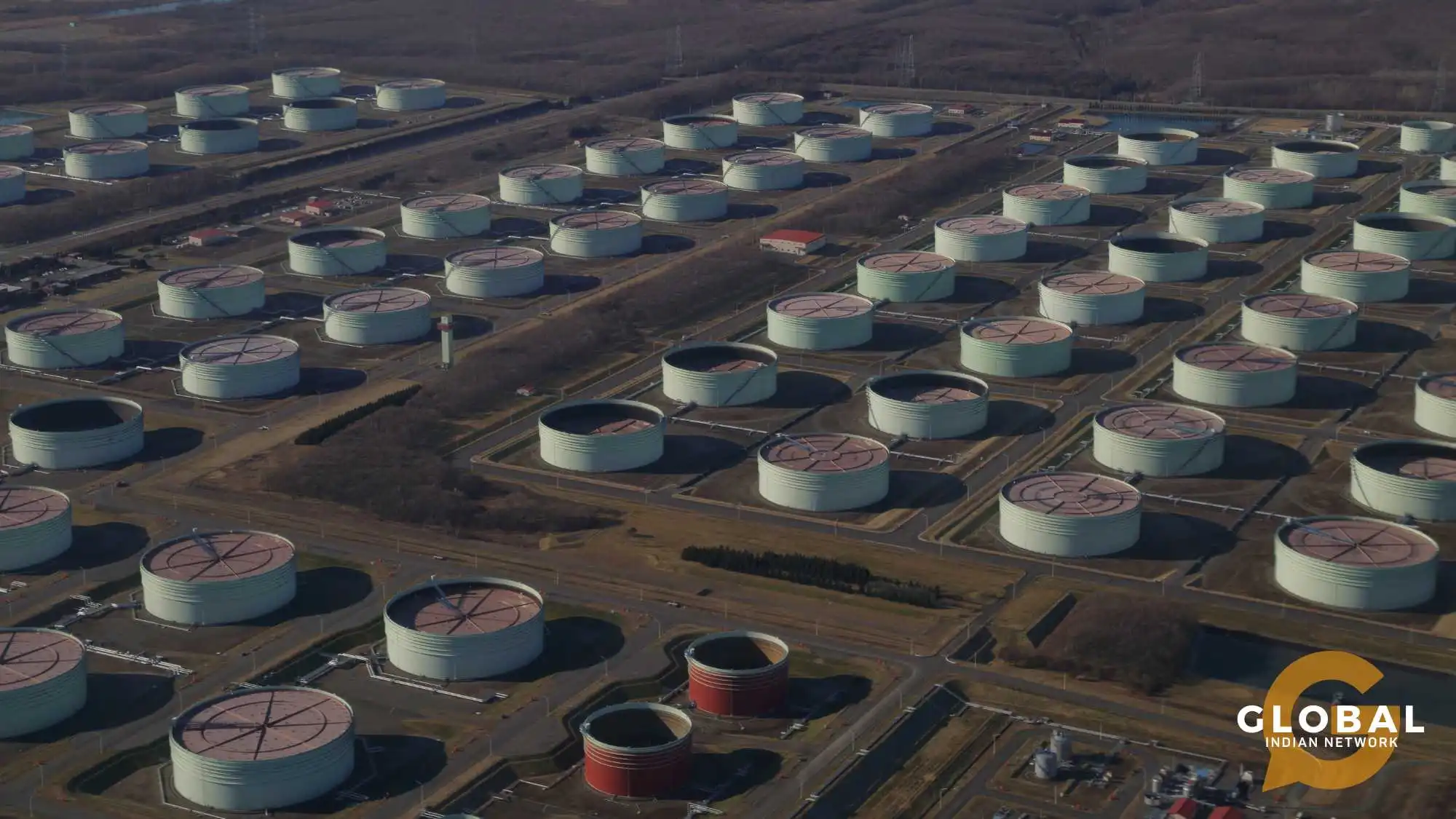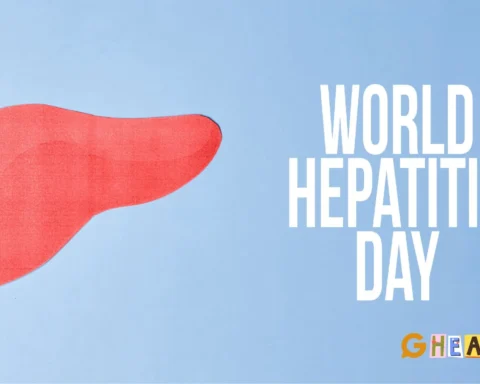Nations, like humans, will do anything to progress or develop. They like to follow the dictum that everything is fair in love and war. Here, we present a case of ‘love for war’. The geopolitics of Guyana-Venezuela is the topic of discussion. The bone of contention is at land and sea, i.e. ore and oil. The war landscape extends from other parts of the world to the comparatively peaceful South America.
Let us dig out and dive in to find the complexities.
Table of Contents
Background: Guyana-Venezuela Geopolitics
In our post-industrial Revolution world, technological advancement is ongoing to achieve further progress. The majority of our developments rely on energy. Oil and coal-based energy is the most prevalent one. Guyana, in South America, found oil in part of its territorial waters in the Atlantic Ocean. The territorial waters of Guyana stretch 22.2 kilometres (12 nautical miles) from the country's coast. Since this area is regarded as part of Guyana's sovereign territory, the nation has complete control over how the water, the seabed, and the airspace above it are used.
The war for oil is well-known. In this article, we uncover some plots to grab a piece of good fortune. Within the main oil story is an evolving land story.
(Image source: worldatlas)
(Image source: Guyana Ministry of Foreign Affairs; Venezuela National Organisation for Maritime Study - Text added by Author)
Venezuela's claim over the Essequibo region has its roots in the 19th century when it was alleged that British Guiana had infringed on its territory. This led to the International Tribunal of Arbitration ruling in 1899, which was a significant event in the history of this dispute. However, the discovery of oil off Essequibo's coast in 2015 reignited the conflict. Venezuela, eyeing the region's strong economic prospects, particularly in the oil industry, seeks control of the area. The case is now before the International Court of Justice, and a formal ruling could take years.
Venezuela argues that the original arbitration was void due to an agreement from 1966 and contends that the decision was the result of a land theft conspiracy.

Guyana's oil exploration history dates back to the 1700s when Dutch explorers discovered offshore oil capabilities. Significant efforts began in 1916, with Nelson Cannon drilling the first exploration wells in the Waini area. The gas recovered from these wells was used for domestic purposes. In 1966/67, Shell drilled six wells along the Atlantic coast, while Tenneco drilled Guyana Offshore 1 and 2 in 1967.
(Image by Author)
The first significant oil deposits in Guyana were found in 2015, more than 100 miles offshore, by a group led by ExxonMobil, and this discovery completely changed the nation's economy. The discovery has the potential to drastically alter Guyana and propel its citizens to unprecedented levels of prosperity and power.
The government currently receives US$1 billion in revenue from oil annually; by 2027, that amount is expected to increase to US$7.5 billion. These projections indicate that Guyana, a nation of 800,000 people surrounded by rainforests, will become the world's fourth-largest offshore oil producer. Guyana needs to gain the knowledge and legal structure necessary to control the oil boom, so it's unclear if the nation is ready to handle this cash inflow.
In the complex scenario outlined in the 2014 agreement between Hess and Exxon for oil in Guyana waters, Exxon Mobil and China National Offshore Oil Corporation (CNOOC) are contemplating exercising their rights to purchase Hess's share of the Stabroek block (6.6 million acres) offshore Guyana. This action may interfere with Chevron's intentions to acquire Hess for $53 billion, allowing it to purchase a stake in Stabroek Block. A "right of first refusal" provision in the agreement grants development partners the right to buy any stake that is sold.
(Image by Author)
With a 45% stake in the Stabroek block, Exxon is the block operator. The stake of Hess is 30%, and that of CNOOC is 25%. In a twist move in February 2024, Exxon invoked rights in the world’s fastest-growing oil project. Guyana is central to Chevron’s agreed $53 billion Hess deal. The two biggest oil producers in the United States collaborate and compete on global projects.
Economical Potential of the Offshore Oil Sector
The offshore oil sector in Guyana is thriving, with over 11 billion barrels of oil discovered so far. The ExxonMobil-led consortium is advancing its seventh development in the region, with production expected to reach 620,000 b/d once the Payara field reaches maximum capacity and exceeds 1.2 million b/d by 2028. It has identified significant reserves. Conflict over this oil-rich region emphasises how crucial it is for big oil companies to acquire shares in reserves that have been proven strategically.
(Image source: inewsguyna.com - Text added by Author)
Venezuela’s Claim Over Guyanas’s Waters
The significance of Nicolas Maduro, the president of Venezuela, yielding to domestic pressure and issuing a decree on May 27, 2015, cannot be overstated. This decree established the Atlantic coast of Venezuela, including sovereignty over Guyana's territorial waters in the Atlantic Ocean off the Essequibo region and extends eastward across the rest of the country into part of Suriname's maritime space, marking a crucial development in the ongoing territorial dispute.
Meanwhile, Venezuela's domestic politics have escalated due to the country's worsening economic situation. Opposition campaigns against the Maduro administration, including claims of "giving away" the nation's heritage to Guyana, are supported by Venezuelan mythology. The legend of Essequibo is entwined with historical accounts of European discovery, colonial conquests, and the search for fabled riches such as El Dorado. Narratives of a tribal chief or king covered in gold dust during ceremonial rituals, signifying wealth and power, have been linked to the legend of El Dorado.
In reality, Essequibo is endowed with deposits of gold, bauxite, diamonds, iron ore, amethyst, chromite, tin, and silica sand and has elevated Guyana’s economy. The government's resentment towards Exxon Mobil, who recently announced an oil find in Guyana waters, and the behaviour of a navy segment eager to show off its might are also contributing factors.
Venzuela’s Referendum
The Essequibo conflict presents President Nicolas Maduro and his ruling party with a chance to fortify internal support and deflect criticism away from other matters, like the need to free political prisoners and guarantee impartiality in the next presidential election. The government heavily promoted the referendum using various strategies, but it seems to have backfired as only slightly more than half of eligible voters took part.
Violations of Agreements
There have been instances of violations of agreements by parties involved in the oil industry in Guyana. Exxon violated an agreement with Guyana's environmental agency regarding oil spill insurance, potentially leading to spill damages, but only in specific situations, underscoring the violation. A Guyana court case revealed ExxonMobil's attempt to reduce its liability for future oil spill costs, despite being liable, by attempting to pass insurance costs to Guyanese taxpayers, which was rejected.
Judge Sandil Kissoon ruled that ExxonMobil's consortium violated environmental permit requirements for the Liza 1 project in Guyana, highlighting drilling breaches and non-enforcement of insurance. This violation raises potential risks for the state if an oil spill occurs.
Chevron-ExxonMobil Dispute
Exxon Mobil is in talks with Chevron to acquire a 30% share in the Stabroek block, an oil field off Guyana's coast. Exxon claims first refusal for the sale, potentially threatening Chevron's $53 billion acquisition of Hess. If the deal fails, Hess may have to pay a $1.7 billion breakup fee.
Exxon is collaborating closely with the Guyanese government to safeguard its rights and privileges because it wants to make sure it can realise the substantial value it has added to the Guyana asset. The dispute highlights the value of the Guyana projects to Exxon and suggests that Chevron may be acquiring its stake too cheaply.
Chevron Stance
Chevron's acquisition of Hess was treated as a matter of course rather than contentious in February 2024 at an energy conference in Guyana's capital, Georgetown, where attendees included dozens of executives from Exxon, Hess, CNOOC and representatives from the Guyanese government.
Exxon and Chevron are at odds because of this position, which is a setback for Mike Wirth, Chevron's CEO. The conflict could jeopardise Chevron's $53 billion acquisition of Hess due to Exxon Mobil and China's CNOOC claiming they have the right to block Chevron's bid for a share in an oil project off the coast of Guyana. The Stabroek block in Guyana, where substantial oil reserves have been found, is the centre of conflict. Concerning Chevron's attempt to purchase Hess's portion of the project, Exxon has brought up pre-emption rights under their joint operating agreement. This dispute underscores the competitive and strategic dynamics in the oil industry and has raised questions about the completion of Chevron's acquisition of Hess.
Implications of Chevron-Hess Deal
The Chevron-Hess deal has not been completed due to disagreements over the joint operating agreement for the Stabroek Block offshore oil field in Guyana. Exxon Mobil and China National Offshore Oil Corporation (CNOOC) hold stakes in the Guyana site and have rights to first refusal. Chevron is in talks with them, but if negotiations fail, the Hess purchase may not proceed as planned.
The ongoing competition between Chevron and Exxon Mobil over Guyana's oil fields underscores the challenges and uncertainties associated with significant acquisitions and investments in the oil sector, affecting the future development and operations of the oil-rich territories off Guyana's coast.

Role of International Agencies
The United Nations Convention on the Law of the Sea (UNCLOS) provides a framework for resolving maritime conflicts, including those involving oil discovery and exploitation. It outlines guidelines for defining maritime borders, coastal states' obligations, and rights and responsibilities in the exclusive economic zone and continental shelf. The Venezuela-Guyana conflict is currently before the International Court of Justice in The Hague, potentially setting a precedent for maritime boundary disputes.
Organisation of the Petroleum Exporting Countries (OPEC)
OPEC, formed in 1960 by Iran, Iraq, Kuwait, Saudi Arabia, and Venezuela, aims to maintain market stability by coordinating petroleum policies among its member nations. Its decisions on oil production levels directly impact the world economy and energy market, influencing the dynamics of the oil market and overall oil prices.
OPEC has not commented on the territorial dispute between Venezuela and Guyana, but the global community has closely monitored the situation. In December 2023, Venezuela and Guyana agreed to peaceful coexistence and good neighbourliness, and a joint commission was formed to address issues related to the disputed Essequibo region.
International Court of Justice (ICJ)
The territorial dispute between Venezuela and Guyana has led to diplomatic and legal actions from the international community. Venezuela's argument that the 1899 Arbitral Award is invalid caused the conflict. The International Court of Justice was brought in 2018 to resolve the dispute, following former Secretary-General Ban Ki-moon's 2016 framework. Guyana has requested the ICJ to open proceedings against Venezuela for a peaceful resolution.
The International Court of Justice (ICJ) ruled against Venezuela from altering the Essequibo region under Guyana's control in 2023. Despite tensions, both countries pledged a peaceful resolution through bilateral dialogue. The dispute revolves around Venezuela's historical claims, economic interests, and strategic considerations.
Venezuela's Response to the British HMS Trent's Visit
Venezuela has ordered its armed forces to conduct defensive drills in the Eastern Caribbean following the arrival of the British warship HMS Trent in Guyana. President Nicolás Maduro deemed the arrival a threat and a violation of a recent agreement between the two South American countries. Maduro ordered 6,000 Venezuelan soldiers to coordinate operations off the country's east coast, close to the Guyana border.
Venezuela's President Nicolás Maduro has criticised the deployment of British warship HMS Trent to Guyana's territorial waters, claiming it violates a recent agreement between the two South American nations. Maduro deemed the deployment unacceptable and a threat to any Latin American sovereign nation. He emphasised Venezuela's commitment to communication, diplomacy, and peace but emphasised its refusal to accept independence challenges.
UK Statement
The UK's Ministry of Defense stated that the ship would continue its international efforts to protect Guyana's territorial integrity.
The British warship HMS Trent was positioned near Guyana's territorial waters, leading to Venezuela conducting military drills in the Eastern Caribbean. The UK retaliated by sending HMS Trent to Guyana as a show of support for the former British colony. Brazil's Ministry of Foreign Affairs expressed concern over Venezuela's drills and urged South American nations to abide by the Argyle Declaration, a previous agreement for peaceful border disputes. Brazil also urged other countries to abstain from military actions that would aid either side of the conflict.
The UK's deployment of HMS Trent and Venezuela's military response to Guyana and Venezuela's territorial dispute over the Essequibo region are escalating tensions. The involvement of international players like Brazil and the UK underscores the dispute's broader implications for international relations and regional stability. Both nations maintain claims, calling for diplomatic solutions and nonviolent negotiations.
Reaction of the International Community to Venezuela's military exercises
The international community has responded to Venezuela's military drills and the British warship HMS Trent's proximity to Guyana's territorial waters, urging a peaceful resolution. Brazil's Ministry of Foreign Affairs has urged both South American nations to follow the Argyle Declaration, a previous agreement, and cautioned against military operations that could aid either side of the conflict.
The Caribbean Community (CARICOM) and the Organization of American States (OAS) are potential mediators in Venezuela and Guyana's ongoing dispute over the mineral- and oil-rich Essequibo region. These organisations highlight the complexity of past territorial disputes and the need for careful balancing in international relations, particularly when dealing with disputes involving natural resources and national sovereignty. Recent intensifications have raised concerns about future hostilities.
The Land Dispute
The Essequibo region, sometimes referred to as Esequibo or Guayana Esequiba in Spanish is at the centre of the Guyana-Venezuela territorial dispute. Here are the key points:
The contested region, extending 61,600 square miles west of the Essequibo River, has historical origins in Guyana as part of six regions, but Venezuela and the Guyana Esequiba State claim the same territory. The conflict originated during the colonial era, involving Guyana, the Netherlands, and Spain, which was also the colonial power of Venezuela.
Because of the border dispute, Venezuelan President Antonio Guzmán Blanco broke diplomatic ties with the United Kingdom in 1887. Venezuela was not happy with the Paris Arbitral Award of 1899 because it largely favoured Britain.
USA and Venezuela Relations
Over the years, there have been a lot of tensions and complexity in the relationship between the US and Venezuela. Historically, ties were good when Venezuela was governed by democratic parties like Carlos Andrés Pérez and Rafael Caldera. But after Hugo Chávez took office in 1999 and proclaimed himself a socialist, tensions increased and strained ties with the United States resulted. Relations deteriorated even more when Chávez and his successor, Nicolás Maduro, made opposing the United States a central tenet of their foreign policies.
With some changes in Venezuela's economic policy suggesting a move towards economic liberalisation, 2023 was seen as a turning point for U.S.-Venezuela relations. The Maduro government has worked to strengthen the nation's economy and has demonstrated a willingness to interact with outside investment. Furthermore, there have been signs of a renewed closeness between Europe and Venezuela, with European investments being crucial in industries like energy.
There are still issues in the U.S.-Venezuela relationship despite these recent developments. Wide-ranging sanctions have been placed on the Maduro government by the United States, which have frozen assets and prevented Venezuela from selling oil on the open market. Millions of people have fled Venezuela in search of asylum abroad as a result of the country's humanitarian crisis, which has been made worse by economic mismanagement and sanctions. Despite some encouraging moves in the direction of engagement, questions about the future course of relations between the United States and Venezuela persist.
Guyana's Growth
With this growth, Guyana will emerge as the fourth-biggest producer of offshore oil globally, bringing in a substantial amount of money for the nation. Numerous infrastructure projects, such as the building of hospitals, hotels, schools, highways, and a gas-to-energy project, have been implemented as a result of the oil boom. Although there are now more job opportunities thanks to these projects, Guyanese nationals still have relatively little direct employment in the oil industry.
With a sizable population of African and East Indian descent, Guyana's political landscape is divided along ethnic lines. Debates about the best ways to allocate and spend the newly discovered wealth from the oil industry are predicted to ensue. Overall, improvements in restaurants, urban development, and agriculture are just a few of the obvious changes that Guyana is already seeing.
Guyana now ranks fourth in the world for offshore oil production, bringing in a substantial amount of money for the nation. In contrast, poor management and economic sanctions have caused Venezuela's oil industry to collapse.
Guyana’s Stand
According to Vice President Bharrat Jagdeo, Guyana is actively seeking to draw in oil companies and developers in order to lessen Exxon's sway over the nation, as reported by Reuters on 28 February 2024. He expressed his excitement about Exxon and Chevron, two of the biggest and wealthiest producers in the United States, collaborating to "accelerate production" in the nation.
According to Rob Thummel, managing director of energy investor Tortoise Capita (based in the US), "Exxon clearly wants Guyana assets," but it might not look good to block business partner Hess's sale of itself to Chevron.
Environmental Risk History
ExxonMobil
Exxon Corporation, founded in 1882 as part of the Standard Oil Trust, later became ExxonMobil after a 1999 merger with Mobil Corporation. Its roots can be traced back to the Standard Oil Company in New Jersey, which later became Exxon Corporation in 1972. ExxonMobil has a significant history of environmental risk and climate change denial. Here are some key points:
- ExxonMobil, despite being aware of climate change dangers since 1977, has been actively denialist, undermining efforts to mitigate its effects. Despite dismissing concerns, executives acknowledge the potential impact on their business.
- ExxonMobil, aware of climate change since the 1970s, conducted research on ocean carbon dioxide absorption. Despite this, the company actively questioned climate science and hindered significant action to combat global warming despite its knowledge.
- ExxonMobil has been accused of dishonest business practices, including spreading false information about climate science, misleading the public, and hindering government efforts to address climate change by supporting groups and think tanks opposing climate legislation.
- ExxonMobil is accused of spreading false information to advance its interests, causing experts to believe it hinders climate change efforts and increases greenhouse gas emissions. The U.S. Department of Justice has been urged to investigate.
The energy industry faces challenges when corporate interests conflict with environmental concerns. ExxonMobil's history of environmental risk and climate change denial emphasises these challenges and emphasises the need for transparency, accountability, and responsible environmental stewardship.
Chevron
Chevron Corporation, founded in 1879, has a history of mergers and acquisitions, including merging with Gulf Oil Corporation in 1984, acquiring Texaco Inc. in 2001, and purchasing Unocal Corporation in 2005. These strategic moves have made Chevron one of the largest global oil companies. Chevron, a major multinational energy company, has faced significant environmental challenges and criticisms over the years. Here are some key points:
- Chevron, a global oil company, has been implicated in environmental violations worldwide, including harmful emissions and damage at its refinery in Richmond, California. The company has faced fines and lawsuits for violations of pollution laws, waste-water discharges, and toxic emissions.
- Chevron faces criticism for its investments in low-carbon energy sources and climate change management. While a small portion of its long-term investments are solar and wind power, some argue that the company still heavily relies on fossil fuels despite its commitment to reducing emissions.
- Chevron is facing numerous international lawsuits for human rights violations and environmental harm in various countries, including Africa, Asia, the Middle East, Latin America, Brazil, Argentina, and Venezuela. These cases involve significant fines, court rulings, and settlements for environmental harm caused by Chevron's operations.
- Chevron's oil exploration operations have negatively impacted indigenous communities and nearby areas, including the Sakai Indigenous people in Indonesia, forced relocation of Inuit villages in Alaska due to flooding, and the risk to marine life in the Arctic Ocean due to seismic blasting for oil reserves.
These incidents draw attention to the environmental dangers and disputes related to Chevron's international operations. Environmental advocates and the impacted communities are concerned about the company's environmental management practices, legal issues, and community impacts.

The Quagmire
Here, we are gauging the appropriateness of Exxon and Chevron based on the environmental lawsuits they have faced.
Comparing Chevron to ExxonMobil, it appears that the former has more pending lawsuits than the latter. According to a report by an independent expert, Chevron has 70 ongoing cases in 31 countries, with just 0.006% ($286 million) in fines, court judgments, and settlements paid thus far. However, the precise number of ongoing lawsuits that ExxonMobil is facing due to its denial of climate change is not available.
There is no specific information about how many lawsuits Exxon and Chevron have won worldwide in the search results. It should be mentioned, though, that Chevron has a number of ongoing legal cases in different nations and that the company has only paid a small portion of the fines, settlements, and court orders thus far. The corporation is still in debt on a worldwide scale, including a sizable award for environmental harm in the "Amazon Chernobyl" lawsuit. ExxonMobil's role in climate change denial and legal challenges are recorded, but they do not provide precise information on how many lawsuits the company has won.
Is There a War Looming?
Tensions in the ongoing territorial dispute with Venezuela over the Essequibo region erupted in January 2024 when the British warship HMS Trent approached Guyana's territorial waters in December 2023. The UK took this action in response to Venezuela, a neighbour, reiterating its claim to a disputed oil-rich region of the Guyanan islands. The Ministry of Defence confirmed that HMS Trent would take part in joint exercises with Guyana's defence forces. As the only English-speaking country in South America and a Commonwealth member, Guyana received military and diplomatic support from HMS Trent during its visit, which was one of several interactions in the area.
Guyanese officials are characterising HMS Trent's visit as a prearranged manoeuvre aimed at fortifying the nation's defences. The ship will make its scheduled port call in Guyana. Drug traffickers have been stopped using it off the coast of West Africa.
Using 6,000 soldiers, including air and naval forces, Venezuela plans to conduct coordinated operations near the border with Guyana off its eastern coast. Both countries had previously decided to resolve their differences amicably. Guyana's president, Irfaan Ali, emphasised that his nation has the right to work with allies to ensure its defence.
Conclusion
The oil industry in Guyana faces complexities and challenges, including environmental protection, financial responsibilities, and regulatory enforcement. The disputes between ExxonMobil and Guyana's environmental agency highlight the need for strict oversight and legal obligations for sustainable oil exploration practices.
However, the oil reserves beneath the coastal waters of Guyana are so valuable that Exxon Mobil Corp is prepared to fight over the complexities of a ten-year contract in order to keep the prize largely to itself and out of the hands of major rival Chevron Corp.
Regarding the territorial dispute between Chevron, Exxon, and Hess over the oil fields in Guyana, the US has not specifically stated as much in public. But attention has been drawn to the legal wrangling between Exxon Mobil and Chevron over the details of a ten-year-old contract to maintain control over the oil-rich region of Guyana. The stakes in this dispute are very high, as evidenced by Exxon Mobil's willingness to fight for control of the lucrative oil reserves in Guyana by arguing over the legal interpretation of the contract.
Whichever entities win, the lives of people in Guyana are at stake from the environmental point of view. ‘Rags to Riches’ is fine in fiction. In real life, the idea has to be tread upon with utmost caution. Sustainable, slow growth is what is beneficial in the long run. Besides, there is no way ‘ethics’ can be done away with in the scheme of things.
In addition to having a huge financial impact, the dispute between Exxon and Chevron also exacerbates geopolitical tensions because of territorial disputes. The resolution of this conflict will influence not only the direction of oil exploration in Guyana but also regional international relations more broadly.
The world can do without more wars.












[…] Conflicts arise from disparate opinions and views. The consequences of the discrepancy are concerning. The journey human beings have traversed as a civilisation is a timeless spectator of how and what conflicts unfold. The inability to resolve the conflicts precedes violence and war. The year 2023 has unfortunately experienced horrifying ethnic conflict, which resulted in war, violence and destruction. […]